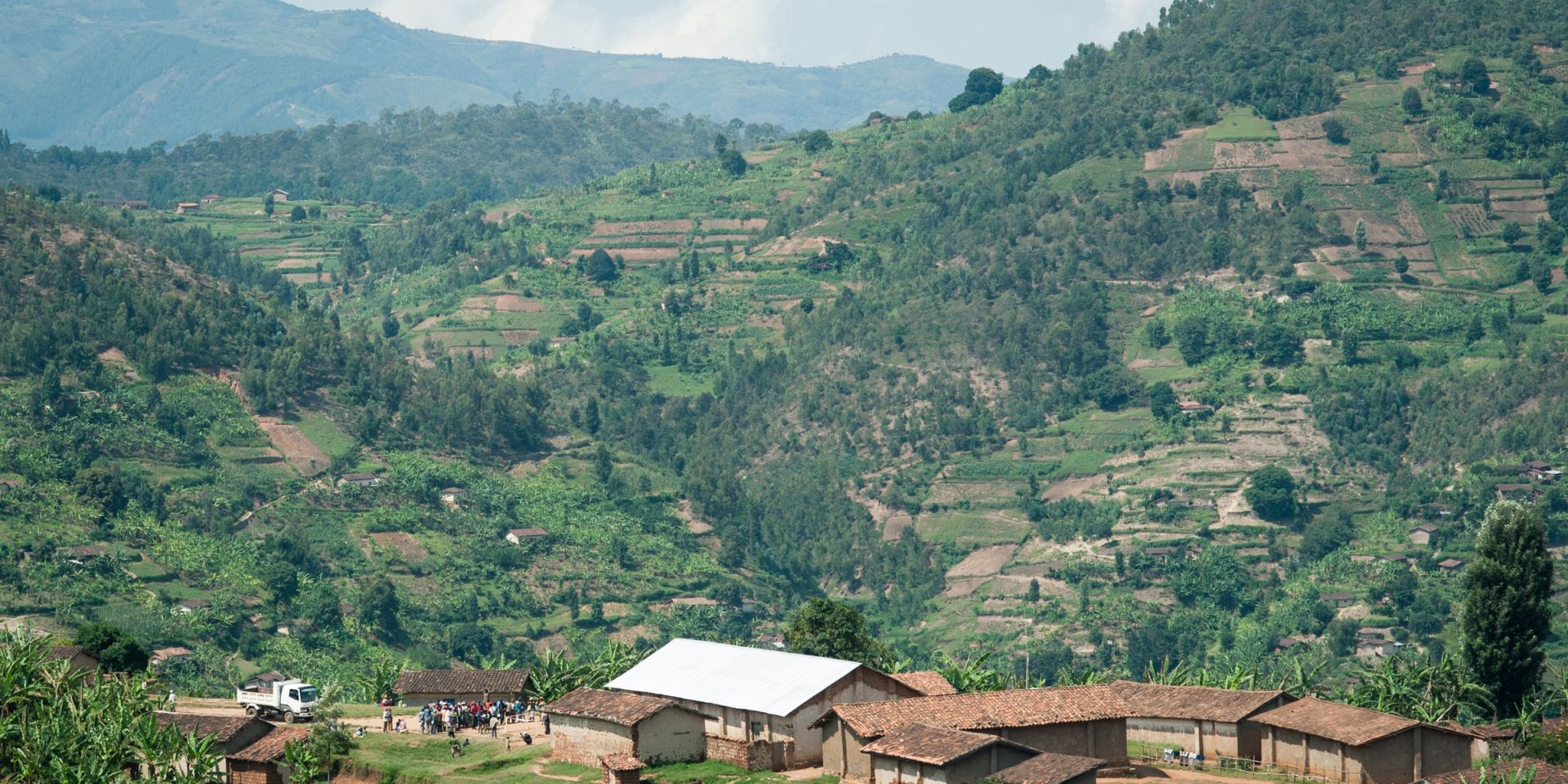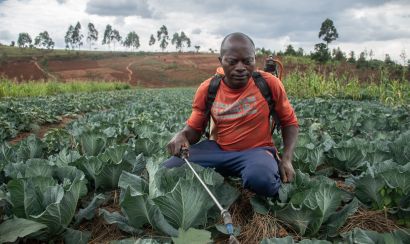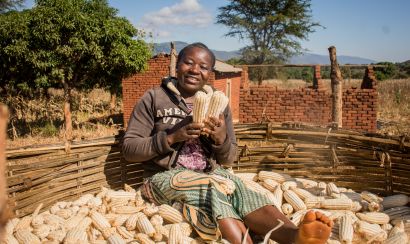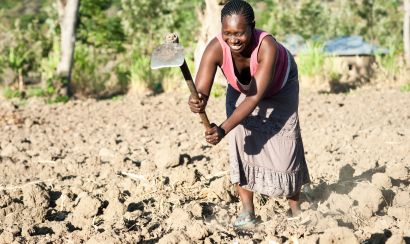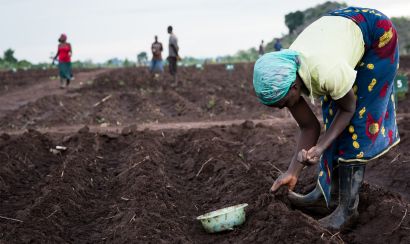Putting Farmers First During a Global Health Crisis
First, we truly hope everyone is keeping safe and healthy at home. This week, we have been reflecting on the importance of continued agricultural production. Most of our nations in East Africa rely on food produced by smallholder farmers, and we simply cannot afford to compound a health crisis with a food crisis.
Good health relies on good harvests—and 1 million farmers rely on One Acre Fund. Our mission has never been clearer: we must help farmers grow enough food to feed their families and feed their communities. We will continue to serve farmers for as long as we can do so safely and responsibly.
At the same time, how we do the work we do must change significantly. We pride ourselves on meeting farmers in their fields, and providing one-on-one customer service—all of which is up for reinvention.
Our teams are working around the clock to reimagine our operations in ways that incorporate government guidance on meeting size, hand washing, and social distancing. To give you a glimpse of how we’re adapting around COVID-19, here are a few updates from our operations in Kenya and Rwanda:
Kenya: 408,000 farmers served
Faster Deliveries
When the first confirmed COVID-19 case was reported in Kenya, we were in the middle of our delivery season. During this time, we deliver key farming supplies, such as seed and fertilizer, along with other life-improving products like solar lights, to the rural locations where farmers live. When the news came, we still needed to deliver to 175,000 clients and had planned for those deliveries to take 25 days. Given the likelihood of future restrictions on movement, we knew time was limited.
Within eight hours of hearing about the first confirmed case, we found ways to scale our distribution network (quickly sourcing hundreds more delivery trucks and fast-tracking clearance of crucial inputs from the port), and our teams were able to cut this delivery window to nine days – completing the final delivery on March 24. This means all of the farmers working with us in Kenya now have the tools and supplies they need to continue producing food over the coming months.
Staying Safe
Our team has been doing our part to #FlattenTheCurve by integrating government and World Health Organization recommendations on COVID-19 preventive measures into our work:
- Remote Working: In the past week, we have pivoted to working from home in all of our offices across the country, and adjusted our operations to function remotely.
- Safe Deliveries: We followed safety practices during our deliveries by texting farmers directions to designated small group pickup points to avoid crowding, setting up handwashing stations at each pickup point, and ensuring each delivery truck only visited one area each day.
- COVID-19 Education: We are training farmers on how to limit the spread of COVID-19 within their communities by adopting WHO best practices.
- Customer Service: Our customer hotline team, which typically works from our Kakamega headquarters, quickly set up a way to work from home. In the team’s first week of working remotely, they answered thousands of calls while maintaining high-quality customer service.
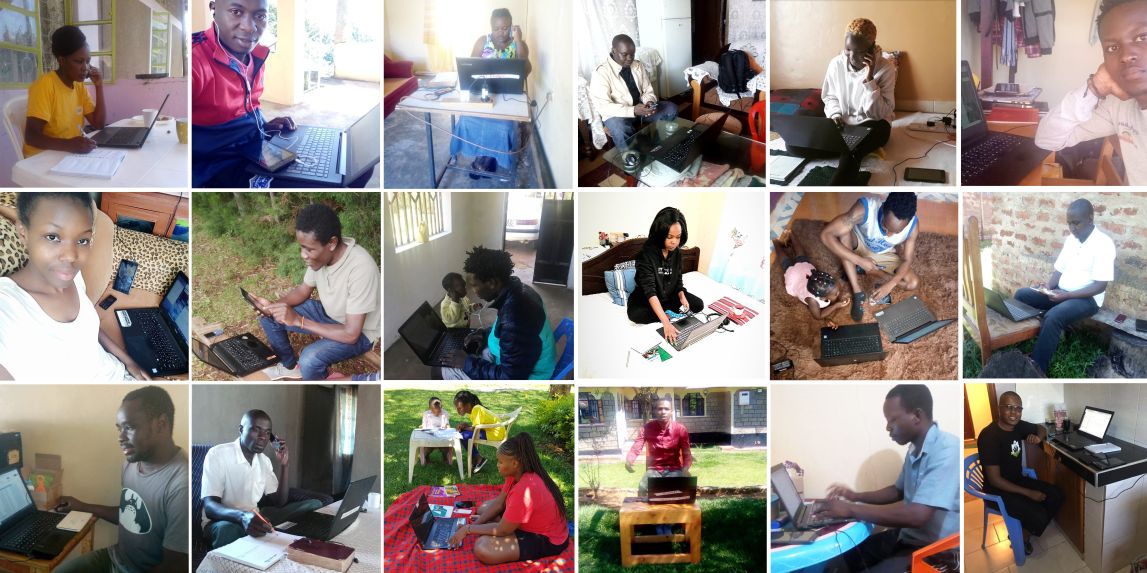
Rwanda: 383,000 farmers served
- Reimagining Field Service: In Rwanda our field officers, who would typically be out meeting farmers in-person, were asked to work from home last week. We had never considered what that would look like prior to this. But, as Leonce Ngaboyakema, one of our operational team leaders put it, “With field officers working from home last week, we had 1,159 more ‘hotline operators’ to serve farmers over the phone.” Our field team continued to stay in touch with the farmers we serve by calling them, answering their questions, and offering crucial support virtually.
- Arming Staff with Technology: Just 72 hours after the first confirmed COVID-19 case was reported in Rwanda, we distributed 685 smartphones to our field staff, allowing the field team to begin digital trainings, create WhatsApp groups for virtual communications, and find new ways to stay connected without a physical weekly meeting.
- Government Relations: Government support has been critical to ensure we can continue serving farmers while staying safe ourselves. Our seed processing, tree nursery, and rural retail operations were designated as “essential services” by the government, which allowed them to remain operational, with advanced health protocols in place.
- USSD Enrollment: Last season, 45% of our clients in Rwanda enrolled via USSD (a text messaging-like functionality that’s possible on basic phones) as opposed to using paper contracts, as we historically have done. Thanks to our field operations and systems teams, we’re now ready to move to 100% USSD enrollment for next season. This is a big step toward empowering farmers, and it allows farmers to place their orders no matter what travel or movement restrictions may be in place.
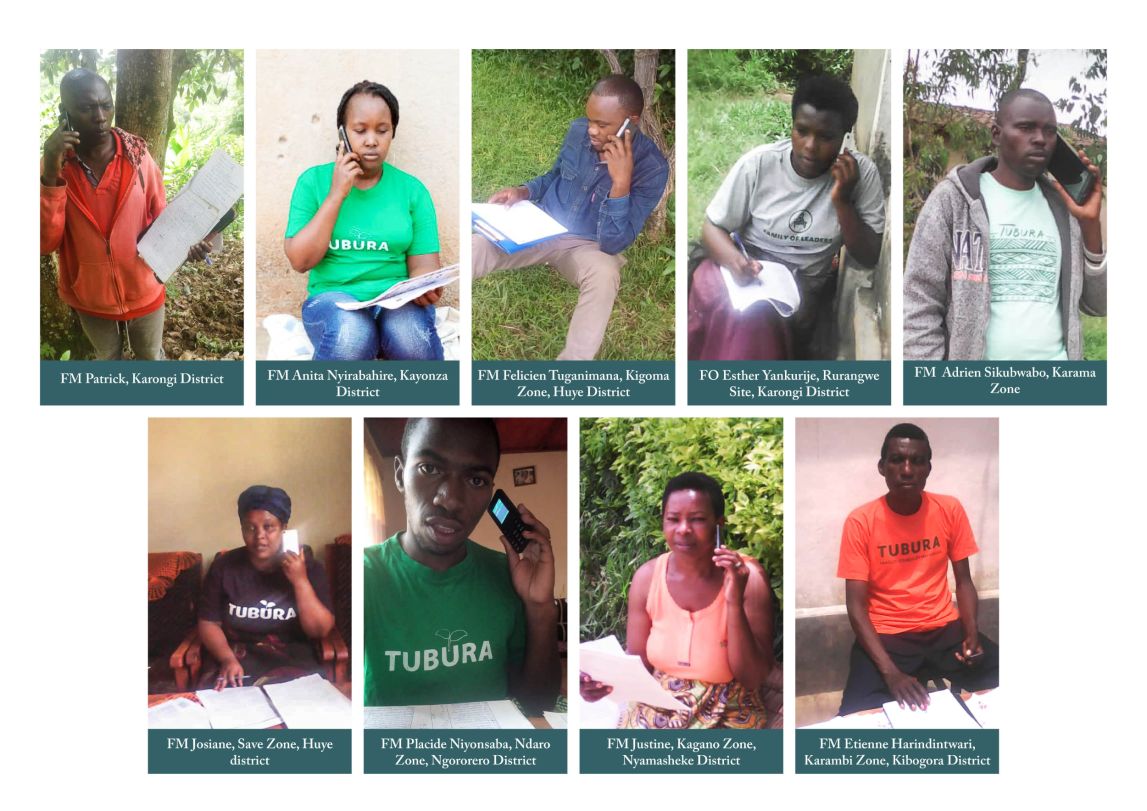
We know that many challenges are still to come, but it is essential that we continue serving farmers. To borrow a saying from our Tanzania team, we’ll find our way forward in this critical time with a cool head, a warm heart, and clean hands. Food security remains essential for our global community’s health, so we will continue to rally our teams around our motto, Farmers First. Stay safe everyone.
